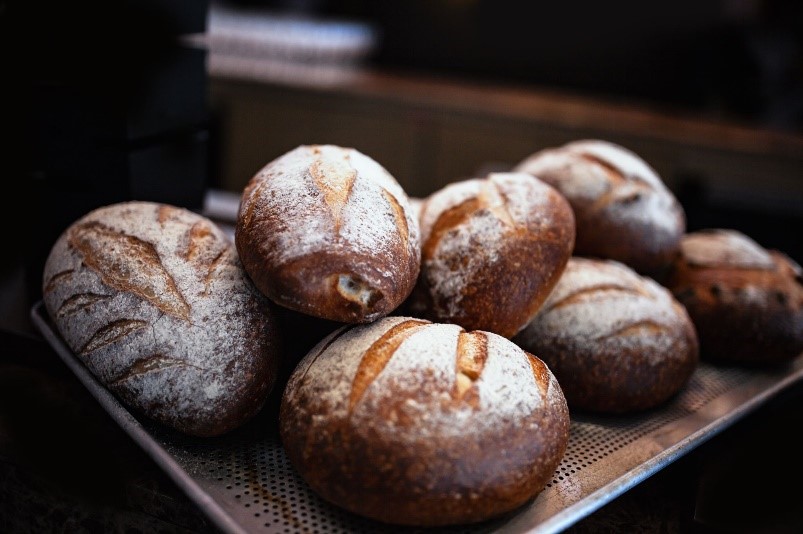Bread of life

Mahatma Ghandhi once said: “There are people in the world so hungry that God cannot appear to them except in the form of bread”.
What do we hunger and thirst for in our crowded lives?
We might not be like half the world; physically hungry, but are there other things that are scarce that might need God’s multiplying effect? Perhaps in these lockdown times we might consider what will feed us body and soul?
It is of interest that stories about Jesus feeding the five thousand (probably more as they usually counted the men not the women and children) with five loaves and two fish, occur in all four gospels. This underlines their significance, saying something about who Jesus is in continuity with other stories about bread that God provides, like the manna that appeared in the wilderness to sustain the Israelite people in Exodus, and the story of prophet Elijah feeding the widow and her son bread which miraculously replenished so they had enough to eat in I Kings 17.
In John’s gospel this story forms one of the seven signs of the kingdom. There is also symbolism in how Jesus offers the bread up to heaven in an act of eucharistic thanksgiving and after this blessing can feed the crowd and produce more than appeared to be at hand, with 12 baskets of leftovers (12 also being symbolic of the twelve tribes of Israel so pointed to the whole nation).
On another level the faith communities then, and now, are encouraged to see that the small offerings of fish and bread are like the offerings that we bring to God which can be expanded and grow in abundant ways. We too are invited to share and be generous for many are hungry and thirsty for what we can share. Here the young child’s offering of his lunch to the disciples becomes a symbol of giving what you have for the sake of others.
As a faith community we are certainly able to share of our time, our gifts, our love, our support, our encouragement and can be there for others in their time of need. I don’t know about you, but I often get a card, a phone call, a word of love or a meal dropped off when I am sick, all just at the right time. These little offerings feel big. It’s wonderful to have people in our lives who give with such kindness and care, but this is not the experience of many.
The singer Jewel’s song Hands contains the words “my hands are small I know but they’re not yours they are my own” which then become “God’s hands”. Also in the coda the refrain says “in the end only kindness matters” calling people to live out their faith in practical ways. Such a message which encourages us too, to be generous even in times of scarcity seems opposite to what our consumer society dictates that there is never enough and where people are not satisfied and want for more and more.
Yet in the language of the kingdom of God revealed by Jesus there are different standards. The crowd ate and were satisfied. They witnessed a small meal becoming enough. They came to see Jesus become more than they first believed, a prophet, the Messiah, the Son of God amongst the people. Like the story in Luke’s gospel chapter 23 of the Emmaus Road journey the friends recognized Jesus the Christ in the breaking of the bread, the giving of thanks and the sharing of ‘the more’ of God.
God can still meet us in our lives in the places where we hunger and thirst, in the deeper desires of our lives. In the places of scarcity in our lives (and even when shelves are empty in the supermarket!) we might find like the old children’s chorus Running over (based on the line in Psalm 23) that our “cup is full and running over”. For surely God’s goodness and mercy is there in our lives and we are blessed.
For the smallest act of love has a multiplying effect, the seed grows, the yeast multiplies, the kingdom of God grows, and we are fed. Amen.

